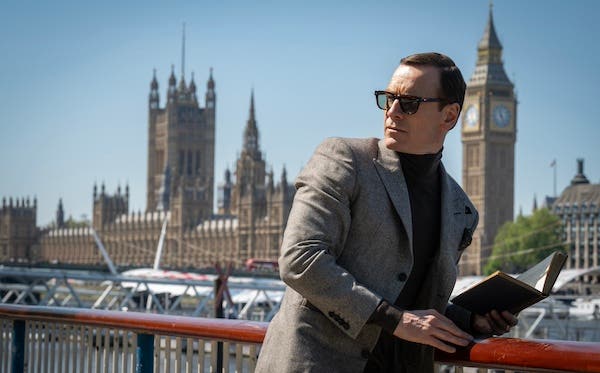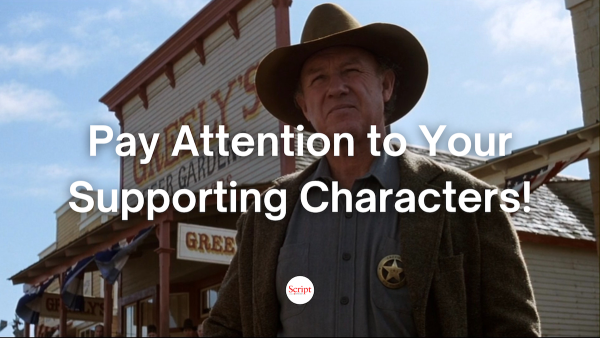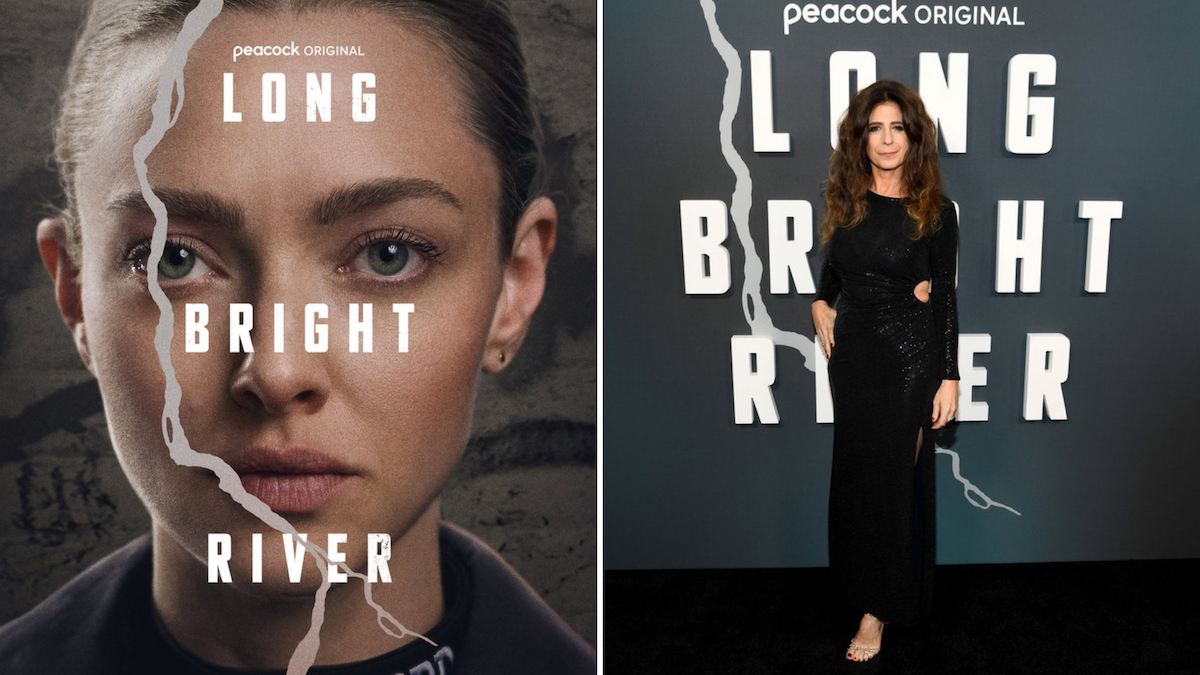Magic Bullet: Two Big Secrets to Screenwriting Success
When Travis Beacham (Clash of the Titans, Pacific Rim) was just an aspiring writer, he and I had a conversation that will stick with me forever. He said to me “there’s no such thing as an original story – to approach writing a new script thinking you’re going to write a story that’s unique and original and No One Else Has Ever Seen is a fool’s errand …”
Disclaimer: All of my columns are geared toward how to write screenplays that would resonate with the industry. I’m not trying to teach you how to write – I’m trying to teach you how to write so that you can actually make a career out of screenwriting. In other words, my advice is how to break into the studio system.
When Travis Beacham (Clash of the Titans, Pacific Rim) was just an aspiring writer, he and I had a conversation that will stick with me forever. He said to me “there’s no such thing as an original story – to approach writing a new script thinking you’re going to write a story that’s unique and original and No One Else Has Ever Seen is a fool’s errand. Man has been writing for thousands of years – every story that will ever be told has been done."
Needless to say, we had a spirited debate about it, but what it all boiled down to was that it’s not the STORY you write that makes something original – it’s how you write it, and all the layers you add to it -- the characters, their dialogue, even how you describe the action of the film on the page. For many of you who have read Travis’ work, this may come as a surprise, as he’s known around town as the “inventive storyworld/action film guy" – and in the short amount of time he’s been in Hollywood, he’s landed on The Black List (the industry’s insider list of “the best scripts”) numerous times. So what’s his secret?
First, a case in point. At the time we were having this debate, he was an unknown and I was sending out his script The Gloaming to my contacts in order to try to help him sell it. The script was getting immediate and overwhelmingly positive reaction, and people were calling it “creative,” “inventive,” “amazing," etc. it looked like he was going to get a great manager, agent, and soon – a sale. After a couple months, it had a new title courtesy of Arnold Kopelson (Killing on Carnival Row) and was sold to New Line Cinema.
Now, this script was a steampunk fantasy about a city with fairies, werewolves, etc., etc., etc. and a human detective who is trying to find and catch a serial killer who is terrorizing the Fairy Quarter. It was a startling, exciting, unique storyworld, and instantly captured people’s attention. People were falling over themselves to call it “fresh” and “original," but here’s the thing – the story is basically The Fugitive. Travis took the story and structure of The Fugitive, and put it in a freaky, cool, interesting, unique world with suitably unique matching dialogue and characters.
He was hailed as original, not because he was reinventing the wheel when it came to story, but because he took a simple story, and gave it interesting, complex, unique layers.
The reason I think it’s crucial to emphasize this idea is that over the last several years, I have been getting a number of … unique scripts that are trying so hard to reinvent the wheel when it comes to story, or be so spellbindingly original, that they are losing sight of A: what actually makes a good story, B: what actually makes a good read, and C: what Hollywood would actually go for.
I know it’s a cliché to say that Hollywood is a corporate-run fiasco of unoriginality, filled with superhero movies and sequels and lowest common denominator dreck. Yes, it's true that the majority of movies that make it to the screen qualify under this umbrella -- this is a business after all. But when you're an aspiring writer, and you're writing a spec, the truth is – and I’ve seen this firsthand with writers I’ve helped besides Travis -- if you can create a breath of fresh air that is both unique AND commercial – you will have a fast track to an agent and a sale.
That delicate balance is hard to strike, but it’s done by taking a simple story, and giving it interesting characters, with great dialogue, in a vivid story world (even if it’s Omaha, Nebraska, if you can bring the setting to life, it makes a huge impression), with a great concept.
All of that brings me to tip number 2:
Simplify Your Story, Complicate Everything Else
Another pro writing friend of mine, who I’ve always thought was an unparalleled screenwriter on a technical level, for a long time wasn’t catching a break. He’d get excellent feedback on his writing, and people would keep asking to read every new script he churned out – but nothing ever stuck. If you read his work, you would think he’s the Michelangelo of screenwriters – no one else could describe so much with so few words, his dialogue was fresh, his characters unique, and his verbs were always so visual. In essence, his writing popped off the page. It was stunning. So why couldn’t he catch a break?
It took a long time, and a lot of people (myself included) to finally convince him that he was way over-complicating his stories. If normal stories went from A to Z, his went way off into another alphabet. Plot twists galore, extraneous plot devices, too many great characters packed into a tight space – the list goes on and on, but what it boils down to is he was never confident enough in his story to just let it be; he had to pack more concept, more twists, more subplots in. To give you a silly (and not an actual script) example, it was like if someone wrote a moving, fast, awesome action movie about a bounty hunter who had to kill werewolves, which turned out were from outer space, so he ends up in a spaceship space battle with them to save mankind, and then falls in love with a werewolf, and finds out he himself is half werewolf. You had me at the first part of the concept, and lost me with all the unnecessary subplots and plot twists.
Finally, once we convinced him to keep his story simple and everything else complicated, he churned out an awesome, quick, grab-you-by-the-(neck) action film that was simple, with cool characters, great dialogue, and a whole lot of heart. It was elegantly simple, as it took place in one location, but again – it was the layers, the dialogue, the characters, and the vivid and snowy story world that made anyone who read it sit up and take notice. He made the story plain, and the characters layered, interesting, and unique. The structure was simple, and the dialogue and action lines were crisp, subtextual, and socked you in the face they were so good.
That script went on to get him a studio assignment for Fox, and he hasn’t looked back ever since. It took him seven (plus) scripts to learn his lesson the hard way: Make your story simple – complicate everything else.
If you ever have any questions or want some advice, feel free to email me at michael@scriptawish.com.
Quick Note: I will be teaching a couple classes at this year’s Screenwriting Expo, one of which will include offering one-on-one mentoring on-site for writers looking to develop and focus their script ideas. Shoot me an e-mail at michael@scriptawish.com if you’re going to be at the Expo and are interested in reserving your own 20 minute block of time.
Previous Articles:





![The Era of the Multi-Hyphenate: An Interview With Writer and Filmmaker Mario O. Moreno [SERIES]](https://scriptmag.com/uploads/MjEzMTEyNzA4NjQ2NTc3NjE1/the-era-of-the-multi-hyphenate-series-script-hero.png?format=auto&optimize=high&width=1440)